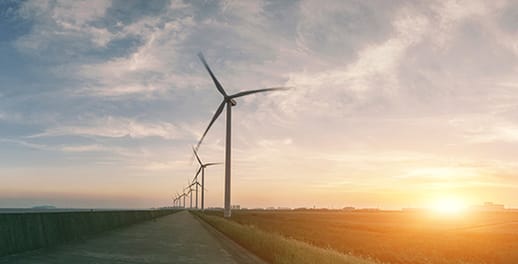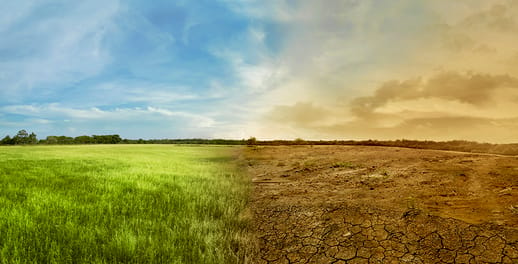MA: From business perspective, Jarredine, how are you viewing the adaptation conversation and where business can obviously play a role here because we're going to need lots of private sector funding in order to not only mitigate, but also to adapt to climate change?
JM: Yes, exactly. So it's, you know, I think I'm probably echoing my colleagues when I say that adaptation has long sort of been the poor relation, in terms of even the COP negotiations.
But in the momentum, to build on Brian's point that they've built in terms of this COP, there's been a lot of effort to pull adaptation and the goals into it.
There are specific goals under the Presidency Program in COP that talk to adaptation and to loss and damage, so I think that's really important.
From a business point of view, I think what's coming through very strongly in a lot of what we're engaging with both the South African business and also on some of the international platforms that we participated in already, is the link between disclosure.
So the need to identify what the risks are, and not just in terms of the mitigation risks, but the actual climate-related impacts. Like extreme weather events, heat shifts, and, you know, to things like our agriculture, and things like that.
These haven't received as much attention as they should have. And again, particularly South Africa, Africa, developing nations and island states who are most vulnerable to the impacts of climate change.
So there's a lot more recognition this year than I've seen previously, over the last few years, that we need to be building that resilience.
So a lot of work, as I say, is being done on how we can identify those risks. But really disclosure is very important. I've been to about seven events already and you know, whether it's finance ministers from key countries, or whether it's, you know, small SMMEs, giving examples of what they're doing on the ground, it's disclosures.
It's everybody working together to try and standardize ways that we can identify what the risks are, and then put together actions to deal with them.
So the real need for this transparency, which also creates the platform for investment. So I think the point was made earlier that we generally are focusing on how do we get investment for mitigation.
But again, if we're transparent and we show what the risks are, then we can encourage that investment.
Yesterday, the Scottish government pledged a million pounds towards rebuilding and resilience-building efforts. And that's the first kind of financial commitment linked to loss and damage funding, which is also an area under the Paris Agreement that they're still working on.
And that first finance is crucial because you need that similar to the Eskom (deal), you know, there's eight and a half billion, once you kind of get that first financing for something that seems a little bit risky and uncertain, you get a lot more appetite to follow.
So it's really giving us again, a lot of excitement for a bit of a step change.
MA: And that is the role for governments and DFIs to play in this space. To take the first loss to take the first risk and then to hopefully, you know, use that in a blended manner to bring in the private sector.
And I see the IFRS Foundation said yesterday, that's the global body that damns us with damned accounting standards, has said that it's going to be focusing a lot more on disclosure.
On making sure that there are a standard set of disclosure requirements so that investors can make these informed decisions.
And Belynda, that seems to me to be an important missing piece of the global jigsaw puzzle here. You've got Mark Carney, as I said, standing up saying we've got 137 trillion Rands worth of assets under management here that are ready to help us achieve net-zero.
But if you don't know what you're measuring, and what the risks are, it's very difficult to direct those private sector capital flows.
So what do you make of the talk now about improving disclosure around those climate-related risks?




